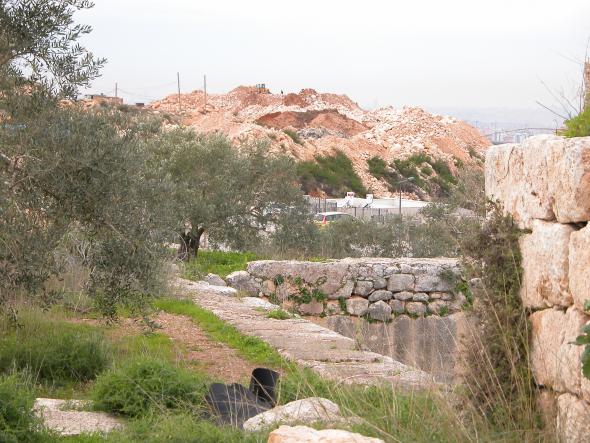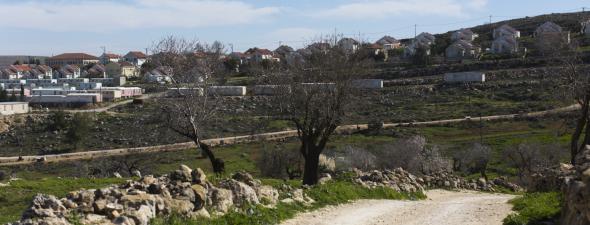He lives with a military base as his closest neighbour. His previous neigbors have already gotten their houses demolished. The Israeli government wants to take his house as well.
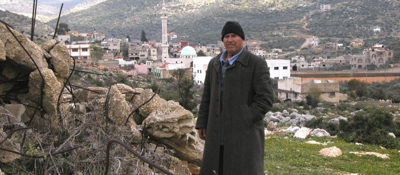
A military base as his neighbour
The farmer Abdul Hamid lives with the military base as his closest neighbour. Two of his relatives houses that were close to his and a small brick factory, are already demolished. Israel wanted to take his home as well. Abdul Hamid’s luck is to have lived for some years in the USA and to carry a US passport. So for the moment he can stay. Nevertheless, the occupation authorities have stolen a lot of his land where his sheep used to pasture.
A doomed village
In Bruqin village in Salfeet governorate, north of the Palestinian administration center Ramallah, 19 houses are demolished and 100 more have received demolition orders. The line between area C and B devides the village and some of the houses. Area C is totally under Israeli administration while area B is, on paper, administered jointly by the Palestinian Authorities and Israel. Israeli colonies and an Israeli military base are encroaching on the village’s land. Within the framework of the Israeli expansion plans in the West Bank, this area falls within the areas to be annexed.
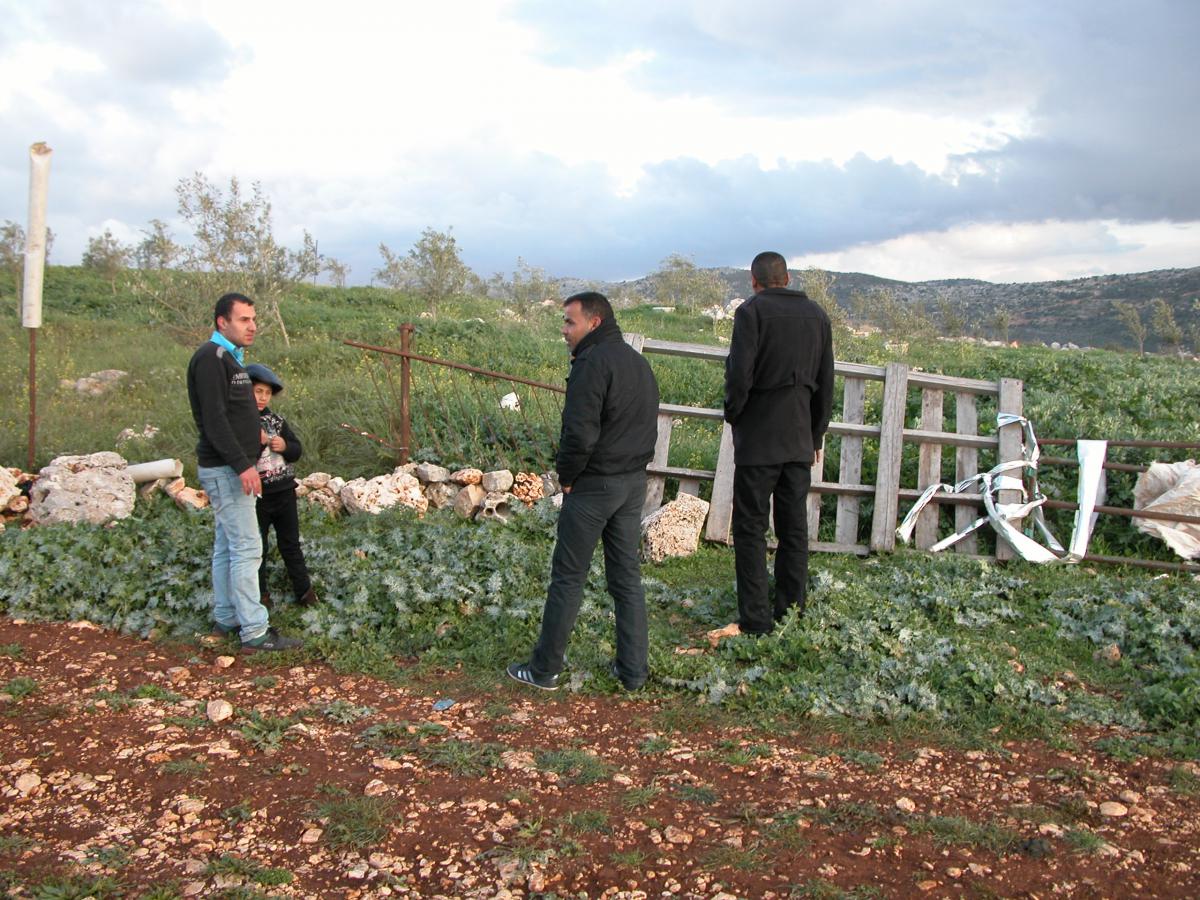
Taking away what they need to live
At another end of the village, the farmer and teacher Ziad Barakat has planted 100 olive trees. They are now 10 years old. One day in october military vehicles came with soldiers. They told him to remove the trees and a shed he has for his sheep. The reason: a new road to be built on that land to connect the colonies. Ziad Barak’s family has owned this land for many generations, and he can prove it with Turkish and Jordanian documents. Still he had to go through two legal appeals that lasted many months but issued no verdict until now. Other Palestinians waiting for a verdict from the Israeli courts have experienced that their homes have been demolished while waiting.
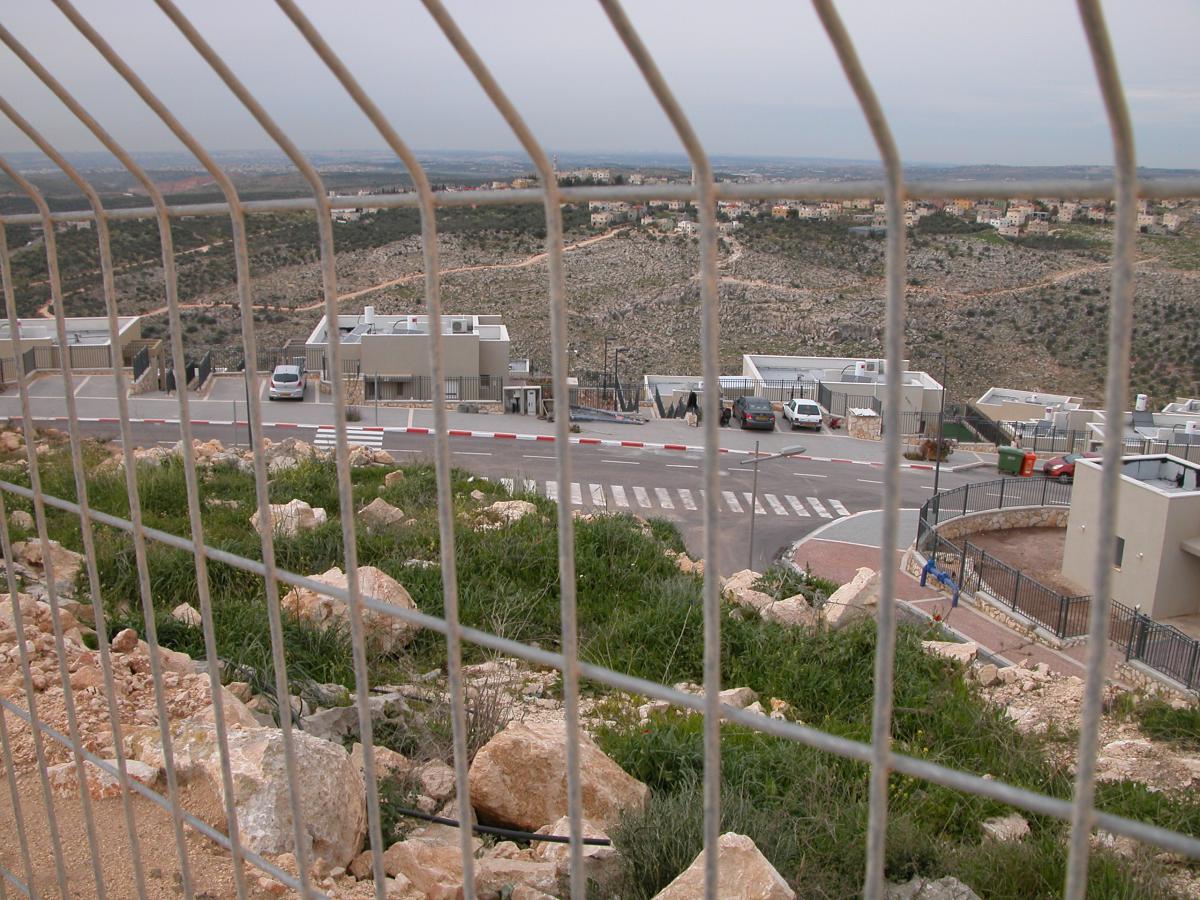
A little left – but not for long?
In Kufr al-Dik, a village close by, Fares Deik is owner of a piece of land where he cultivates olives and potatos around an ancient Roman ruin located there. Israel has stolen antique objects from the ruins and tried to present it as one of their historical sites. It is not. In the distance, but not far away, we can see the old Palestinian land occupied in 1948 with Tel Aviv and other cities at the Mediterranean shores. All around him new outposts are being built as a part of the expansion of the big Ariel colony. On one side an unfinished settlement stands with commenced concrete houses after construction was stopped as a result of the oubreak of the second Intifada, but everywhere else construction equipment are building new settlements or expanding the existing ones. Fares Deik has another land, now isolated behind the new colonies. He can only reach it by travelling all around the settlements and the hills.
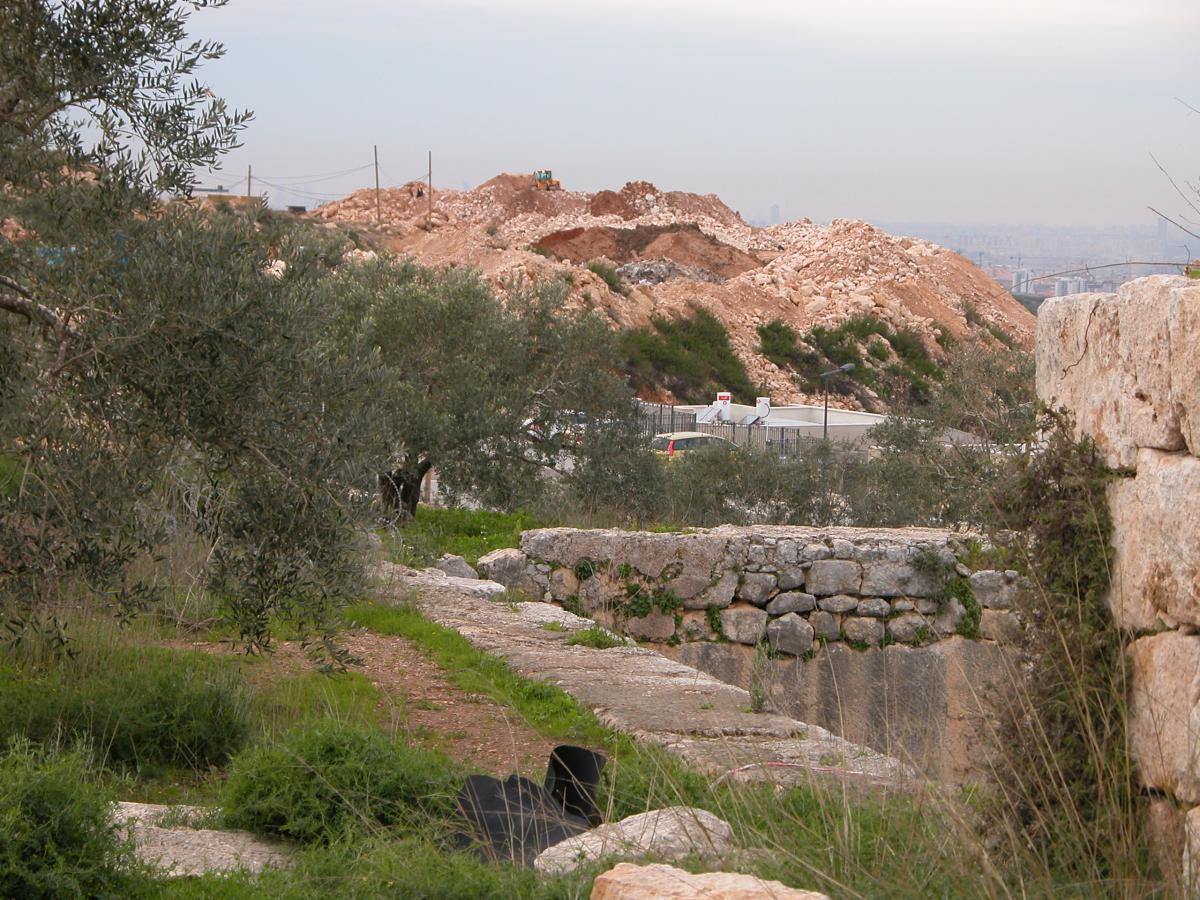
Heavily affected by the Israel
This area is heavily affected by the Israeli occupation and annexation of what is left of Palestine, but the international community is not reacting against the Israeli crimes and genocide against the Palestinian people. Instead many of them, support this criminal regime by funding it, with weapons, and military cooperation.
Genocide:
…any of the following acts committed with intent to destroy, in whole or in part, a national, ethnical, racial or religious group, as such:
-
Killing members of the group.
-
Causing serious bodily or mental harm to members of the group.
-
Deliberately inflicting on the group conditions of life calculated to bring about its physical destruction in whole or in part.
-
Imposing measures intended to prevent births within the group.
-
Forcibly transferring children of the group to another group.
— Convention on the Prevention and Punishment of the Crime of Genocide, Article 2





